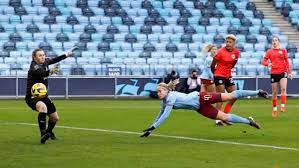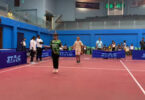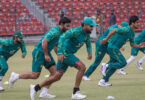New York City, US (Reuters): Women representing their nations to qualify for the soccer World Cup are risking their safety on poor quality pitches, and many are playing for no pay, according to a poll released on Tuesday by the global body that represents players.
Nearly 30% of international female players polled for the FIFPRO report said that they have been playing for nothing, while two-thirds said they had to take unpaid leave from their jobs to represent their country in confederation championships.
The report, released on Tuesday, revealed widespread dissatisfaction with pitch and stadium conditions, medical evaluations and a general absence of universal standards, leading FIFPRO to call for a review of the qualification processes for the six regional soccer confederations.
Match-day stadiums and pitches were not of an “elite standard,” according to 32% of the players, while more than half said they were not provided with a pre-tournament medical exam.
“The conditions that the players are exposed to and expected to deliver in, during some of the biggest competitive moments of their lives, are not up to the standards of elite international football, putting both the players and the sport at risk,” FIFPRO said.
“FIFPRO firmly calls on the industry to take a closer look at the qualification processes in each of the six Confederations.”
The report comes amid global concern over injuries in the women’s game, with a growing chorus calling for better research into the prevalence of injuries ahead of the World Cup, which is scheduled to kick off on July 20 in Australia and New Zealand.
Several high-profile players will be sidelined from the quadrennial tournament, including the American sharpshooter Mallory Swanson, Canada’s gold medal-winning forward Janine Beckie and England captain Leah Williamson, all of whom suffered serious knee injuries earlier this year.
“Establishment of global standards for player conditions at the international level is required for creating a competition landscape where players can be at their best in a protected and stable environment,” said FIFPRO.
FIFPRO also called for all six confederations to hold separate qualifying matches for the Women’s World Cup. At present only Europe’s UEFA holds a standalone qualifying competition.
Each player at the Women’s World Cup this year will be guaranteed at least $30,000 after a ground-breaking move by FIFA to direct some of its prize money to individuals rather than national federations. The winning team will take home $270,000, part of a $110 million prize pool that is up roughly 300% over what was on offer in 2019.







